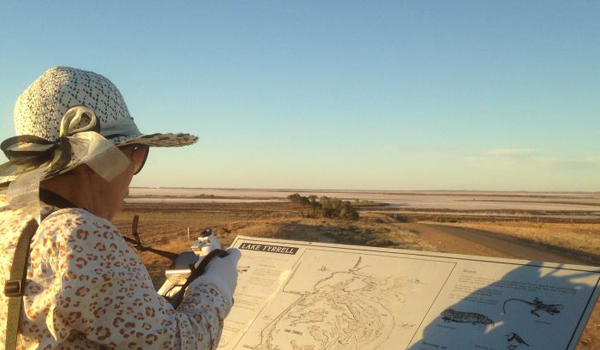Australia must be China-ready to capitalise on its unique tourism, Deloitte report says
They are cashed-up millennials in their late 20s and early 30s, they are social media savvy and are looking for distinctly Australian sights and experiences.
They are the new breed of Chinese tourists and Australia is in a prime position to significantly boost the contribution they generate, a new report concludes.
Industry consultants Deloitte also looked into Chinese investment in the areas of health and agriculture.
In tourism, the report found that in the last year alone Chinese visitors spent a record $8.3 billion — a 45 per cent rise from 2015.
It projects that by 2020 that could grow to $13 billion in both direct investment in tourism-related businesses as well as private visits.
Deloitte partner Adele Labine-Romain said Australia and its tourism sector needs to be very strategic in its response to the forecast growth.
"We need investment in product, in supply, and to match that projected demand," she said.
"We also to need to respond to what means to have visitor from China. It means being China-ready.
"That means having language skills and a service culture that's well orientated for that market.
"Already a number of tourism operators are skilling-up to be China-ready, training to speak Mandarin or employing interpreters, adjusting to the need to how to go about best interacting with their customer."
Uniquely Australian scenes like Lake Tyrrell attract Chinese tourists.
Uniquely Australian experience in demand
Both Federal and state governments have China offices to develop a deeper understanding of what Chinese tourists are looking for.
Helen Sun of the South Australian Tourism Council is based in Beijing and she said Chinese travellers see Australia as a must-see destination.
"People here are still very much in love with the beaches and surfing, the Great Barrier Reef, farms and the outback," she said.
"It has a very good reputation and now with the rapid development of economy, Chinese people want more of what Australia has to offer.
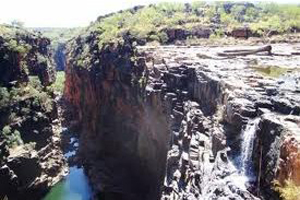 | 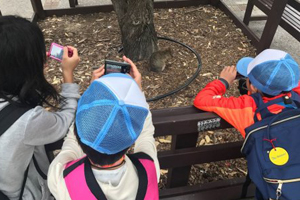 |
Mitchell Falls in WA's Kimberley region is high on the list as a true Australian experience for Chinese tourists. | Quokkas are the star attraction on Rottnest Island. |
"More nature and less people, including less Chinese tourists."
Western Australia is not the main destination for Chinese tourists, but numbers are growing.
Those that do travel to the Kimberley in the far north for an authentic outback experience.
Many also go to Rottnest Island just off the coast of the capital, Perth.
The acting head of the Rottnest Island Board, Michelle Reynolds, believes social media has driven a boom in the number of Chinese visitors there.
It is all down to a colony of small, friendly marsupials called the quokka.
"They all want quokka selfies," she said.
"Any mention of quokka immediately gets picked up globally.
"Chinese and other tourists are desperate to get that selfie with a quokka. It's their absolute number one thing to do."
Lessons learned from Tasmania
In November 2014, Chinese President Xi Jinping visited Tasmania and this visit alone created a desire to see the island state from his own countrymen.
Within a year, Chinese visitor numbers jumped to 28,000 but a number were unhappy with their visit despite Tasmania's attempt to be China-ready.
CEO with the Tourism Industry Council of Tasmania, Luke Martin, said the experience was a steep learning curve and believed cultural differences need to be much better understood.
"For example, in China you don't pay extra for your children if they're travelling with you," he said.
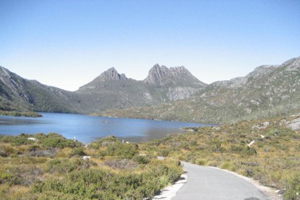
| 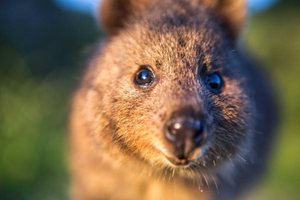
|
Spectactular scenery like the road to Dove Lake at Cradle Mountain in Tasmania attracts Chinese tourists. | A selfie with a quokka on Rottnest Island is a must-do for Chinese tourists. |
"So if they arrive at a property and there's four or five in a group when they've only booked for two, then that's not a fault. It's just the reality that they've got different expectation when they have a booking.
"They want accessible wi-fi and they expect Chinese breakfast to be available in hotels. They want to be able to eat Chinese food for dinner.
"Regional areas all around the country probably need to change their approach and be more culturally aware.
"And I do find it perplexing as to why in Tasmania we're teaching French and German in our schools and not Indonesian and Mandarin.
"With learning a language also comes cultural understanding."
